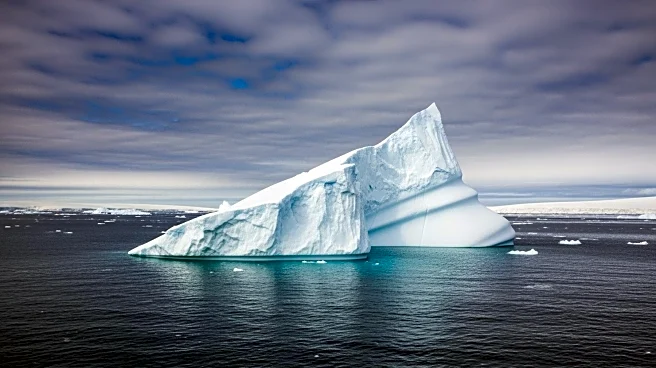What's Happening?
New research published in Nature by scientists from the Australian National University and the University of New South Wales highlights the imminent threat of irreversible changes in Antarctica's ice,
oceans, and ecosystems. These changes are interlinked and pose significant risks to global climate systems, sea levels, and ecosystems. The West Antarctic Ice Sheet is particularly vulnerable, and its potential collapse could lead to a global sea level rise of over three meters, threatening millions in coastal and low-lying areas. The study emphasizes the urgent need to reduce greenhouse gas emissions to mitigate these impacts.
Why It's Important?
The potential collapse of the West Antarctic Ice Sheet and other changes in Antarctica could have catastrophic consequences worldwide, including rising sea levels and disrupted marine ecosystems. These changes could exacerbate global warming and lead to more severe weather patterns. The study underscores the importance of rapid action to reduce emissions and highlights the limitations of current efforts under the Antarctic Treaty System. The findings are crucial for policymakers, businesses, and communities to incorporate into future climate change planning.
What's Next?
The study calls for immediate and significant reductions in greenhouse gas emissions to limit global warming to 1.5 degrees Celsius. Governments, businesses, and communities must consider the observed changes in Antarctica in their climate change impact planning. The research suggests that without swift action, the changes in Antarctica could become unstoppable, leading to long-term global impacts.
Beyond the Headlines
The research highlights the interconnectedness of global climate systems and the potential for cascading effects from changes in Antarctica. The loss of sea ice and changes in ocean circulation could have far-reaching impacts on marine biodiversity and global weather patterns. The study also points to the ethical responsibility of current generations to address climate change to prevent irreversible damage to the planet.









